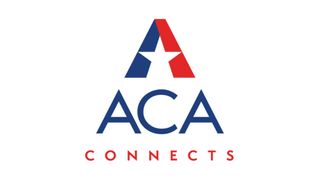ACA Connects Seeks More Leased Access Relief From FCC

ACA Connects wants the FCC to let smaller operators charge more for leased access channels by setting a minimum rate.
The FCC is already proposing a number of changes, including eliminating the requirement that cable operators provide channels for part-time leased access, extending the rule that small systems only have to respond to "bona fide" requests for time (as opposed to requests for information) to all systems, and extend the time frame for responding to such requests from 15 calendar days to 30 calendar days and from 30 to 45 days for smaller systems.
ACA is happy with those, but wants more, since the FCC asked.
In a filing with the commission, which sought input on how else it should tweak the rules, ACA made a pitch for the minimum rate, as well as allowing operators to calculate channel prices based on data collected every three years rather than each time a leased access programmer requests channel space, which is a relatively expensive proposition for smaller systems.
“We appreciate the efforts the FCC has already made to reduce burdens associated with leased access,” said ACA president Matt Polka. "The FCC should further reduce those burdens by permitting cable operators to use a single set of data for a set period of time in responding to leased access requests, rather than having to compile data anew for every request."
As to the channel pricing, ACA said that in many cases the highest, best use of a channel is for more broadband capacity, rather than traditional video, while it is required to give up that channel for leased access at the video rate.
ACA said the FCC should either set a minimum rate to reflect that apples for oranges pricing, "or adjust the formula to avoid requiring the least profitable operators to offer leased access at extremely inexpensive amounts—essentially forcing them to give away capacity that could better be used for broadband."
Broadcasting & Cable Newsletter
The smarter way to stay on top of broadcasting and cable industry. Sign up below
Cable operators have been up front about the declining fortunes of traditional video versus the broadband that is servicing the internet of everything, including video. "[V]ideo profit margins have declined so much for smaller system operators that some ACA Connects members have gotten out of the video business entirely, while others are considering doing so," ACA told the commission.
Contributing editor John Eggerton has been an editor and/or writer on media regulation, legislation and policy for over four decades, including covering the FCC, FTC, Congress, the major media trade associations, and the federal courts. In addition to Multichannel News and Broadcasting + Cable, his work has appeared in Radio World, TV Technology, TV Fax, This Week in Consumer Electronics, Variety and the Encyclopedia Britannica.

